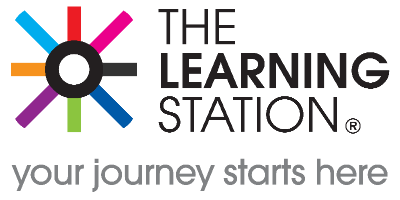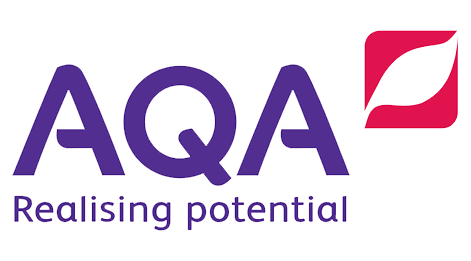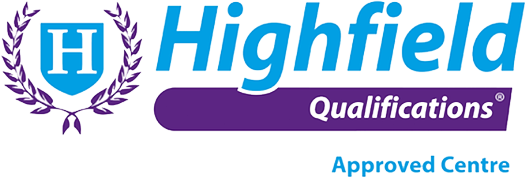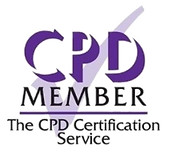If you wish to pay monthly, please click the button below to speak with a sales Rep
About this Course
If you're interested in working with children and young people from 5 - 19 years of age, then you need to enrol and complete the Level 3 Diploma for the Children and Young People's Workforce course. This course is ideal for candidates currently in or moving into, a setting in which they will care for children and/or young people. This can include after-school clubs and holiday camps.
The course is completed online through our online portal over the duration of just 9 – 12 months. Throughout the duration of this Level 3 course, you will be assessed via written assignments, work product evidence, professional discussions, witness testimonies, and an observation.
While completing assignments throughout this Ofsted-approved and TQUK-accredited Childcare qualification, you’ll learn how to support children and young people's health & safety, understand how to safeguard their wellbeing, and how to develop a positive relationship with them while creating a fun and safe environment.
On completion, you will be awarded the TQUK Level 3 Diploma for the Children and Young People’s Workforce (RQF), which is accepted by major regulatory bodies such as Ofsted.
Buying for a business ?
Bulk Discounts
Discounts available when purchasing 10 or more courses. Please ring our sales team on 0208 342 7210 to enquire.Pay by invoices
30 days payment term available when purchasing 5+ courses.Payments should be upfront unless they are regular monthly buyers
Management Suite
Track learner progress for free when you buy 10+ courses.Why take this course?
Career
There is a huge range of opportunities for people with the Level 3 Diploma for the Children and Young People's Workforce. You may work in various roles in childcare settings. After you've gained more experience, you may also move on to a management position. When you do, you may enrol on the Level 5 Diploma in Leadership and Management for the Children and Young People's Workforce (QCF).
Qualification
This TQUK Level 3 Diploma for the Children and Young People’s Workforce is a nationally recognised and Ofqual Regulated Qualification, accepted by major regulatory bodies such as Ofsted. This course is completed on our online learning system as a distance learning course over the duration of 6 – 12 months.
Eligibility
There are no specific entry requirements however learners must be in a job role appropriate to the chosen pathway. This job role can be full-time, part-time, paid or voluntary. The qualification is suitable for learners of 16 years of age and above.
Key Information
Course Duration
This Level 3 Diploma for the Children and Young People's Workforce course can be completed in just 6 – 9 months, however, candidates will have a total of 12 months should they wish to pace themselves.
Course Location
The course is completed as a distance learning course based on our online learning portal. You can complete your online childcare course whenever and wherever you like, as long as you have an internet connection.
Course Support
Throughout your journey, your assessor will be available to support you on your course over the phone, by email and through our messaging system.
FAQ's
How it works
Step 1: Course Enrolment - you will need to complete a short enrolment and telephone induction to start
Step 2: Starting the course - your assessor will introduce themselves and issue you with your first assessment plan
Step 3: Submitting Work - when you have completed an assignment, you can upload it to your course portal for your assessor to mark your work and give you feedback. Feedback will be displayed on your portal and emailed to you for ease of reference
Step 4: Getting Help - when you need help, you can contact your assessor with questions any time as well as being able to get in touch with our customer support team between 9 am and 6 pm Mon - Fri.
Step 5: Completion - once you and your assessor are confident that you have met the criteria in each unit, your portfolio goes into the IQA stage which takes approximately 9-12 weeks. After this stage, we will be able to claim your certificate.
How do I log into my course?
Approximately 15 minutes after purchase, you will receive your login details (Please check Spam folder) by email, including a link and instructions to log into your course. You can also find your learning portal by clicking on the ‘student login’ button on our website or by clicking here; lms.thelearningstation.co.uk.
What units will I need to complete?
Mandatory Units
Unit 1: Engage in personal development in health, social care or children’s and young people’s settings - A/601/1429
- Understand what is required for competence in own work role
- Be able to reflect on practice
- Be able to evaluate own performance
- Be able to agree a personal development plan
- Be able to use learning opportunities and reflective practice to contribute to personal development
Unit 2: Promote communication in health, social care or children’s and young people’s settings - J/601/1434
- Understand why effective communication is important in the work setting
- Be able to meet the communication and language needs, wishes and preferences of individuals
- Be able to overcome barriers to communication
- Be able to apply principles and practices relating to confidentiality
Unit 3: Principles for implementing duty of care in health, social care or children’s and young people’s settings - R/601/1436
- Understand how duty of care contributes to safe practice
- Know how to address conflicts or dilemmas that may arise between an individual’s rights and the duty of care
- Know how to respond to complaints
Unit 4: Promote equality and inclusion in health, social care or children’s and young people’s settings - Y/601/1437
- Understand the importance of diversity, equality and inclusion
- Be able to work in an inclusive way
- Be able to promote diversity, equality and inclusion
Unit 5: Support Children and Young People's Healthand Safety - D/601/1696
- Understand how to plan and provide environments and services that support children and young people’s health and safety
- Be able to recognise and manage risks to health, safety and security in a work setting or off site visits
- Understand how to support children and young people to assess and manage risk for themselves
- Understand appropriate responses to accidents, incidents emergencies and illness in work settings and off site visits
Unit 6: Develop Positive Relationship with Children, Young People and Others Involved in Their Care - H/601/1697
- Be able to develop positive relationships with children and young people
- Be able to build positive relationships with people involved in the care of children and young people
Unit 7: Working Together for the Benefit of Children and Young People - K/601/1698
- Understand integrated and multi agency working
- Be able to communicate with others for professional purposes
- Be able to support organisational processes and procedures for recording, storing and sharing information
Unit 8: Understand Child and Young Person Development - L/601/1693
- Understand the expected pattern of development for children and young people from birth - 19 years
- Understand the factors that influence children and young people’s development and how these affect practice
- Understand how to monitor children and young people’s development and interventions that should take place if this is not following the expected pattern
- Understand the importance of early intervention to support the speech, language and communication needs of children and young people
- Understand the potential effects of transitions on children and young people’s development
Unit 9: Understand How to Support Positive Outcomes for Children and Young People - M/601/1699
- Understand how the social, economic and cultural environment can impact on the outcomes and life chances of children and young people
- Understand how practitioners can make a positive difference in outcomes for children and young people
- Understand the possible impact of disability, special requirements (additional needs) and attitudes on positive outcomes for children and young people
- Understand the importance of equality, diversity and inclusion in promoting positive outcomes for children and young people
Unit 10: Promote Child and Young Person Development - R/601/1694
- Be able to assess the development needs of children or young people and prepare a development plan
- Be able to promote the development of children or young people
- Be able to support the provision of environments and services that promote the development of children or young people
- Understand how working practices can impact on the development of children and young people
- Be able to support children and young people’s positive behaviour
- Be able to support children and young people experiencing transitions
Unit 11: Understand How to Safeguard the Wellbeing of Children and Young People - Y/601/1695
- Understand the main legislation, guidelines, policies and procedures for safeguarding children and young people
- Understand the importance of working in partnership with other organisations to safeguard children and young people
- Understand the importance of ensuring children and young people’s safety and protection in the work setting
- Understand how to respond to evidence or concerns that a child or young person has been abused or harmed
- Understand how to respond to evidence or concerns that a child or young person has been bullied
- Understand how to work with children and young people to support their safety and wellbeing
- Understand the importance of safety for children and young people
To achieve the Level 3 Diploma for Children and Young People’s Workforce, learners must achieve a minimum of 65 credits to achieve this qualification. These are made up of 27 credits from Mandatory Units Group A as shown above, [all units in one selected pathway – Early Learning and Children (22 credits) or Social Care (13 credits) or Learning, Development and Support (13 credits)]. Any remaining credit must be taken from the Optional Unit Groups; a minimum of 12 credits from Optional Group B and the remaining 14 credits can be taken from Optional Groups B and C.
You can find the Optional Units in the course qualification handbook.
If you'd like a copy of the course qualification handbook, please give us a call now on 0208 342 7210.
When will I have my induction?
You will get a call to arrange your induction within days of completing the enrolment process. the induction will go through your chosen course, advise on suitability, Help you choose your optional units, and pathways, explain what is expected from your work, provide training on the use of our system and answer any questions that you have. The Induction will take place over the phone.
When will my work get marked?
You can expect any work submitted to be marked within 14 days marking and feedback may take longer if you submit more than 3 assignments in a month.
Are there any classes or learning materials?
All our courses are delivered online so no Classroom learning, We have some learning resources but as our qualifications are vocational and work-based courses, you are expected to conduct research and gain skills, knowledge and understanding from your working environment. Your assessor will provide you with assessment plans, which may include guidance and materials, as well as provide constructive feedback on the work that you complete.
When will I hear from my tutor/assessor?
Your assessor will provide you with assessment plans with work to complete, as well as their contact information. They will not reach out to you if you are not doing your work, you need to get in touch if you are having trouble with your assignments.
Your assessor should respond to any messages from you within just 3-working days, but it is usually sooner. If you have sent your assessor a message and you haven’t heard back from them, please let us know by emailing [email protected].
How will I be Assessed
This qualification requires an assessment of both competence and knowledge. Throughout your level 3 Diploma for the Children and Young Peoples Workforce (Early Years Educator) course, you will be assessed through a variety of methods:
- Written assignments and coursework
- Having a manager or colleague complete a witness testimony of tasks completed in a workplace
- Direct observations of you carrying out work-related tasks
- Professional discussions over the phone
- Supplying us with work product evidence.
When will I get my certificate?
Upon completion of your course, there are steps that we must take to quality assure your qualification to then send to the awarding organisation.
- The Assessor must review your work in full before submitting it to our IQA, this usually takes around 2 weeks.
- The IQA will review any requests within 1-months, but this is usually sooner. If there are actions on your portfolio it will be sent to the assessor for them to complete, and then these steps will be repeated.
- Once the IQA has quality-checked and approved your portfolio for external sampling by the awarding body, the office will submit the claim for your certificate within 5 working days.
- The awarding body will usually issue a certificate within 2-weeks from this point; however, they may request sampling of your work, in which case it can be up to one month.
- The usual duration is 1-2 months from completion.
See More
Why study with the Learning Station?
The Learning Station is fast becoming one of the UK’s top providers of online tuition with many students happily completing their chosen Online & Distance Learning courses. Whatever your reason is for enrolling on one of our courses, you can rest assured that you will be supported by a highly qualified, experienced and helpful assessor.
Benefits of the Learning Station
- We have thousands of successful learners
- All our qualifications are Fully Accredited and Nationally Recognised
- Our courses are specifically designed to ensure fast progression
- Simple to use e-learning and distance learning courses
- Easy online payment options
- Experienced & Responsive Online Tutors/Assessors
- On-Site Internal Quality Assurance & Moderator
- Technical Support 09:30 – 17:00 Mon-Fri

Our Partners
Need Some More Info ?
Fill out the form and we'll get straight back to you with help.



 Student Login
Student Login My Account
My Account










